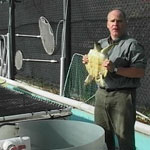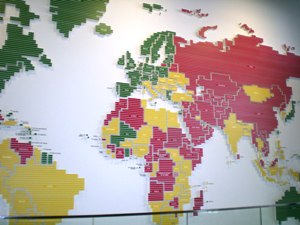Mobile phone is increasingly becoming an essential tool for journalists in the Philippines to report about environmental issues especially in isolated, hard-to-reach communities.
The Philippines, with more than 7,000 island, is literally at the doorstep of typhoons, natural disasters and the devastating impact of climate change such as severe drought, floods, heat wave, heavy rains and typhoons.
And with the influx of people and rapid industrial growth, environmental issues such as: air and water pollution, solid waste management, decline of biodiversity, deforestation, irresponsible mining, and natural resource management, energy, climate change and disaster are increasingly becoming major concerns.
In the past few years, mobile phone has become a more common and powerful reporting tool for environmental journalists, increasing information accessibility to many people, especially in isolated communities.
More and more journalists are interested in engaging their audiences and report stories using text messages. So we aim to increase both the quality and quantity of information available in real-time, especially in reporting environmental issues,” according to the Philippine Network of Environmental Journalists (PNEJ).
PNEJ’s Philippine EnviroNews project (environews.ph), launched in April 2013 with the support from the Internews’ Earth Journalism Network, seeks to upgrade reporting skills of local journalists through the use of their mobile phones and empower citizens who are eager to report on and find solutions to environmental problems in the country.
So far, more than 50 community journalists have been trained on techniques in using mobile phones and journalistic skills to cover environmental issues.
The Philippine EnviroNews project relies on FrontlineSMS, a free and open-source tool which enables journalists to share information in 160 characters. By plugging in any mobile phone or GSM modem connected to a computer, people can use SMS in a sophisticated and professional way.
The project sets up a way for local journalists to text story tips and reports into the system using codes and formats. The system can manage large numbers of incoming and outgoing text messages, send auto-replies and notification alerts. Verified information sent is edited and posted by a pool of editors to the environews.ph. It is then moved to social media platforms Twitter and Facebook.
“This is a very good example of harnessing technology, especially in reporting environmental issues in our communities,” said Davao City-based jorunalist Henrylito Tacio. “Our reporting is fast, immediate and readers can track down latest information on disaster, typhoon path, flooding, the mining industry, and even health.”
Anna Valmero, a multimedia reporter of loqal.ph, said through this project, more journalists would be trained on how to effectively use their mobile devices for multimedia reporting on the environment and community-specific issues.
“The Philippine EnviroNews project integrates mobile reporting and social media to increase the reach of community stories to a wider, more global audience. By doing so, PNEJ members and other journalists can be models and they can help build a community and eventually, allow for a more collaborative platform of sharing and distributing news,” Valmero said.
Alex Pal, publisher of Metro Post in Dumaguete City, said the project provides a platform for environmental stories to be shared and build community engagement.
“The name of the game is speed. SMS will get the news out faster and further,” Pal said.







































